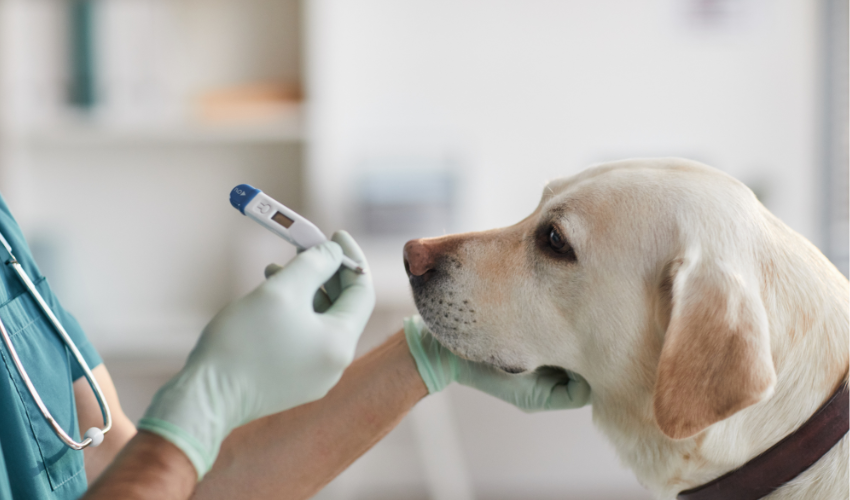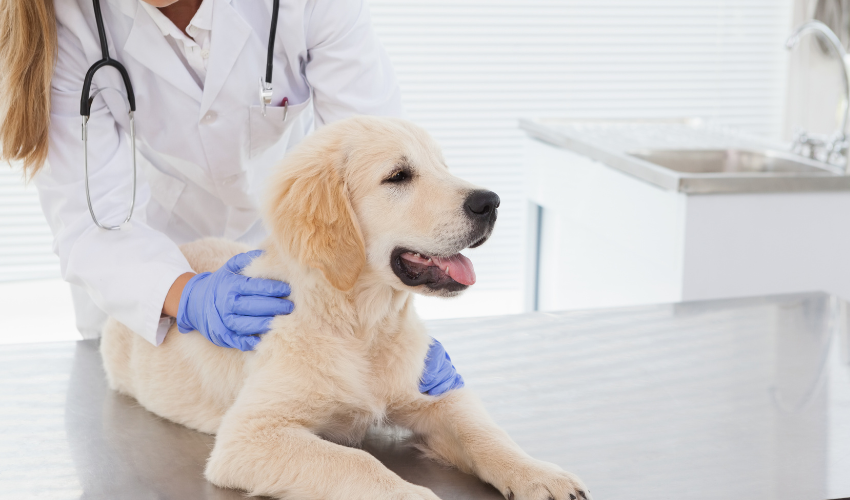As a pet owner, you want to provide the best possible care for your furry friend. Along with providing a balanced diet, exercise, and love, regular check-ups with your vet are essential for ensuring your pet’s health and well-being. Just like humans, pets can also develop health problems, and early detection is key to successful treatment. In this article, we will discuss why regular check-ups with your vet are important and what to expect during a check-up.

Why Are Regular Check-Ups with Your Vet Important?
Regular check-ups with your vet can help detect and prevent health problems in your pet.
Here are some of the reasons why regular check-ups are important:
- Early Detection of Health Problems: Regular check-ups can help detect health problems in their early stages, making treatment more effective and less expensive.
- Preventive Care: Regular check-ups allow your vet to provide preventive care, such as vaccinations, parasite control, and dental care.
- Maintaining Good Health: Regular check-ups can help maintain your pet’s overall health, ensuring that they are up to date on their vaccinations and receiving the necessary care to live a long and healthy life.

What Happens During a Check-Up?
During a check-up, your vet will perform a physical examination of your pet, including:
- Checking Vital Signs: Your vet will check your pet’s temperature, pulse, and respiration rate to ensure they are within normal ranges.
- Examining the Ears, Eyes, and Mouth: Your vet will examine your pet’s ears, eyes, and mouth for signs of infection, inflammation, or other issues.
- Checking the Skin and Coat: Your vet will check your pet’s skin and coat for any lumps, bumps, or signs of skin disease.
- Palpating the Abdomen: Your vet will palpate your pet’s abdomen to check for any abnormalities.
- Listening to the Heart and Lungs: Your vet will listen to your pet’s heart and lungs with a stethoscope to check for any abnormalities.
Your vet may also recommend additional tests, such as blood work or X-rays, to check for underlying health issues.
Frequently Asked Questions:
How often should I schedule a check-up for my pet?
You should schedule a check-up for your pet at least once a year. However, senior pets and pets with underlying health issues may require more frequent check-ups.
Is it necessary to vaccinate my pet every year?
The frequency of vaccination may vary depending on your pet’s age, health status, and lifestyle. Your vet can recommend a vaccination schedule that is appropriate for your pet.
What should I do if my pet shows signs of illness between check-ups?
If your pet shows signs of illness, such as vomiting, diarrhea, or lethargy, you should schedule an appointment with your vet as soon as possible.
Can my pet’s diet affect their health?
Yes, a balanced diet is essential for your pet’s health. Your vet can recommend a diet that is appropriate for your pet’s age, breed, and health status.
What should I do if my pet becomes anxious during a check-up?
If your pet becomes anxious during a check-up, your vet can recommend techniques or medications to help your pet feel more relaxed.
Conclusion:
In addition to regular check-ups, it’s also important to pay attention to your pet’s behavior and any changes in their habits or routine. If you notice any unusual symptoms or behavior, such as lethargy, loss of appetite, or vomiting, it’s important to schedule an appointment with your vet as soon as possible. Early detection and treatment can make all the difference in your pet’s health and well-being.
Finally, it’s important to choose a veterinarian that you trust and feel comfortable with. A good veterinarian should be knowledgeable, compassionate, and able to communicate effectively with both you and your pet. Don’t be afraid to ask questions or voice any concerns you may have during your pet’s check-up. Remember, you are your pet’s advocate, and by working together with your vet, you can provide the best possible care for your furry friend.
In conclusion, regular check-ups with your vet are essential for ensuring your pet’s health and well-being. By scheduling regular appointments and following your vet’s recommendations, you can help detect and prevent health problems in your pet, provide preventive care, and maintain good overall health. If you haven’t scheduled a check-up for your pet recently, don’t hesitate to do so. Your furry friend will thank you for it!






















